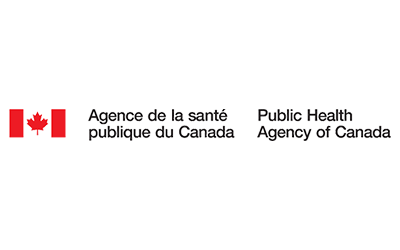No. An omega-3 supplement is not recommended for all pregnant women. A full evaluation by a nutritionist of the diet and risk factors in the mother is required to assess the suitability of using such a supplement.
A fish oil supplement should not be considered an alternative to the consumption of fish or omega-3 rich food. For more information on omega-3 in food, click here. As with all supplements, omega-3 intake should be assessed and monitored by a healthcare professional, considering all the impacts this may have on the pregnant woman’s health.
In recent years, particular interest has been taken on omega-3 and its possible beneficial impact in reducing the risk of certain health conditions during pregnancy, such as premature delivery *, problems with the child’s neurological development, low birth weight, preeclampsia, gestational diabetes or postpartum depression. Following a review of the different studies on the subject, it is to remember that:
- There is a real benefit on the neurological development of the fetus when consuming omega-3 in the form of fish during pregnancy. To learn more about what types of fish to choose during pregnancy, click here.
- Positive effects have not been demonstrated for the conditions mentioned above (*) when taking an omega-3 supplement.
- In the case of a high-risk pregnancy, taking an omega-3 supplement would have little positive effect on the birth weight and the risk of prematurity, but further studies are necessary.
- In most pregnancies, there are no benefits to taking an omega-3 supplement, but there is no inconvenience or risks for the pregnant woman or the child.
The consumption of fish seems to be the most beneficial health wise. Although more research is needed to fully understand the mechanism, it could be that it is the combination of omega-3 with other nutrients in fish that is most favorable.
At the Montreal Diet Dispensary, taking a fish oil supplement may be recommended as part of a treatment plan established and monitored by a nutritionist, and in some situations:
- Low omega-3 intake: low consumption of fish, seafood and plant sources (walnuts, flaxseed, etc.).
- High risk of preterm birth or severe restriction of intrauterine growth: history of preterm delivery, signs of early labor, important stress.
- The presence of certain risk factors may also justify the relevance of taking an omega-3 supplement; this is to be determined by a healthcare professional. To learn more about risk factors during pregnancy, click here (article coming soon).
For women with low-risk pregnancies, there is no interest in taking an omega-3 supplement. The recommendation is to consume 200-350 g of cooked fish per week to meet the needs during pregnancy. To learn on which fish to consume during pregnancy, click here.
Although fish oil supplements are relatively safe during pregnancy, they are not recommended for pregnant women who present with bleeding or who take anticoagulants (a blood thinner) such as Coumadin or Heparin. Cod liver oil is also not recommended for all pregnant women due to its high vitamin A content. For more information on the effects of vitamin A on the fetus, click here. For information on how to choose an omega-3 supplement, click here. In all cases, before choosing a supplement, consult a pharmacist and/or a healthcare professional.
Références
Abrams, S. (2015). Omega-3 long chain polyunsaturated fatty acids (LCPUFA) for preterm and term infants. UpToDate.
Bernardi, J. R., de Souza Escobar, ER. Ferreira, C. F., et Silveira, P. P. (2012). Fetal and neonatal levels of omega-3 : effects on neurodevelopment, nutrition and growth. The Scientific World Journal, 2012: 1-9. Relevé à:
http://www.ncbi.nlm.nih.gov/pubmed/23125553
Fields, C. J. (2015). DHA in Maternal and Child Health. Division of Nutrition, University of Alberta. Alberta: Canada.
FDA: U.S. Food and Drug Administration. (2014). Fish: What pregnant women and parents should know. FDA: U.S. Food and Drug Administration & EPA: United States Environmental Protection Agency. Relevé à:
http://www.fda.gov/Food/FoodborneIllnessContaminants/Metals/ucm393070.htm
Fondation OLO. (2012). La consommation d’acides gras omega-3 dans le contexte OLO : la position du comité scientifique. Relevé à :
http://fondationolo.ca/wp-content/uploads/2014/09/2012-05-11positioncomitescientifiqueoloomega3.pdf
Gould, J. F., Smithers, L. G. et Makrides, M. (2013). The effect of maternal omega-3 (n-3) LCPUFA supplementation during pregnancy on early childhood cognitive and visual development: a systematic review and meta-analysis of randomized controlled trials. The American Journal of Clinical Nutrition. 97: 531-44. Relevé à:
http://ajcn.nutrition.org/content/97/3/531.short
Gunaratne, A.W., Makrides, M. et Collins, C.T. (2015). Maternal prenatal and/or postnatal n-3 long chain polyunsaturated fatty acids (LCPUFA) supplementation for preventing allergies in early childhood (Review). Cochrane Library, 7. Relevé à:
http://onlinelibrary.wiley.com/doi/10.1002/14651858.CD010085.pub2/pdf/abstract
Imhoff-Kunsh, B. (2011). Supplémentation en huiles d’origine marine pendant la grossesse et situation sanitaire de la mère et du nouveau-né. Organisation Mondiale de la Santé. Relevé à :
http://www.who.int/elena/titles/commentary/fish_oil_pregnancy/fr/
Martin, B., Perreault, M., Thériault-Dubé, I. (2007). Les oméga-3 en périnatologie. Québec Pharmacie, 54(7), 6-9.
Meldrum, S., Dunstan, J. A., Foster, J.K., Simmer, K. et Prescott, S.L. (2015). Maternal fish oil supplementation in pregnancy : A 12 year follow-up of a randomized controlled trial. Nutrients, 7: 2061-2067. Relevé à:
http://www.ncbi.nlm.nih.gov/pubmed/25803546
Oken, E. (2015). Fish consumption during pregnancy. UpToDate.
Oken, E. (2016). Fish consumption and omega-3 long chain polyunsaturated fatty acid supplementation during pregnancy. UpToDate.
PEN : Practice-based Evidence in Nutrition. (2015). Is there evidence to support a benefit for taking omega-3 fatty acids supplements during pregnancy?. PEN : Practice-based Evidence in Nutrition.
Saccone, G., Saccone, I. et Berghella, V. (2015). Omega-3 long chain polyunsaturated fatty acids and fish oil supplementation during pregnancy: which evidence?. The Journal of Maternal-Fetal & Neonatal Medcine, 1-9. Relevé à:
http://www.ncbi.nlm.nih.gov/pubmed/26382010
Saccone, G. & Berghella, V. (2015). Omega-3 long chain polyunsaturated fatty acids to prevent preterm birth: a systematic review and meta-analysis. Obstetrics & Gynecology, 125(3): 663-672. Relevé à:
http://www.ncbi.nlm.nih.gov/pubmed/25730231
Santé canada. (2009). Le poisson et les acides gras oméga-3, Lignes directrices sur la nutrition pendant la grossesse à l'intention des professionnels de la santé. Repéré à :
http://www.hc-sc.gc.ca/fn-an/pubs/nutrition/omega3-fra.php
Wenstrom, K. (2014). The FDA’s new advice on fish: it’s complicated. American Journal of Obstetrics & Gynecology, 211(5), 475-478. Relevé à:
http://www.ncbi.nlm.nih.gov/pubmed/25072735
Ressources
Dionne, J. Y. (2009). Suppléments alimentaires pour la femme enceinte, 2è partie.
Gouvernement du Canada. (2014). Consommation d’acides gras oméga 3 et de poisson pendant la grossesse : Utiliser les suppléments d’huiles de poisson.
In collaboration with the Dispensary workers






